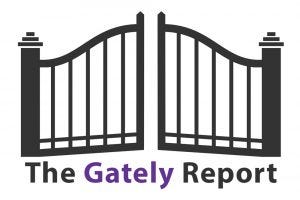Plus, a second, massive data leak has followed an earlier ransomware attack on Oakland, California.

Cowbell Cyber partners have a lot to look forward to. The provider of cyber insurance for SMEs has launched its United Kingdom operations and has plans for further expansion.


Cowbell Cyber’s Matthew Jones
That’s according to Matthew Jones, Cowbell’s chief strategy officer. Founded in 2019, Cowbell is backed by 20 global (re)insurance partners. It serves SMEs in 50 U.S. states and the District of Columbia.
Cowbell has grown its risk pool internationally to 35 million SMEs. That allows the company to pre-assess risk and deliver coverage while maintaining an accurate underwriting process. Cowbell’s risk pool also contributes to maintaining proactive visibility into the macro-level cyber threat landscape in the SME market.
New Cowbell Technology Center
To further extend the company’s global focus on innovation for cyber insurance, Cowbell recently opened a new technology center in Pune, India. This follows a string of initiatives the company has launched over the past year. That includes Cowbell 365, which offers policyholders support for risk improvement and incident response, and the introduction of Cowbell’s Adaptive Cyber Insurance offering.
Cowbell continuously evolves its policies to remain aligned with the policyholder’s cyber exposures. It also does so to avoid coverage gaps and bring transparency into renewal terms throughout the policy period.
Cyber Doesn’t Recognize Borders

Cowbell Cyber’s Isabelle Dumont
To learn more about Cowbell, we spoke with Jones and Isabelle Dumont, senior vice president of tech partnerships and marketing.
“The really interesting thing about the United Kingdom right now is that it’s actually in many ways in the state that the U.S. market was a few years ago,” he said. “So if you compare penetration among SMEs in the United States versus the United Kingdom, far fewer SMEs are buying cyber insurance in the United Kingdom than in the United States. And unlike property insurance, which in many ways is defined by borders, cyber insurance knows no bounds. Cyber doesn’t recognize borders. And so after the last three-and-a-half to four years of building technology, what we own is a technology asset that enables us to select risk in almost any market. And given what we’ve learned over the last few years, we also feel very confident about being able to apply that to helping our customers reduce their risk over time.”
Scroll through our slideshow above for more from Cowbell and more cybersecurity news.
Want to contact the author directly about this story? Have ideas for a follow-up article? Email Edward Gately or connect with him on LinkedIn. |
About the Author(s)
You May Also Like


